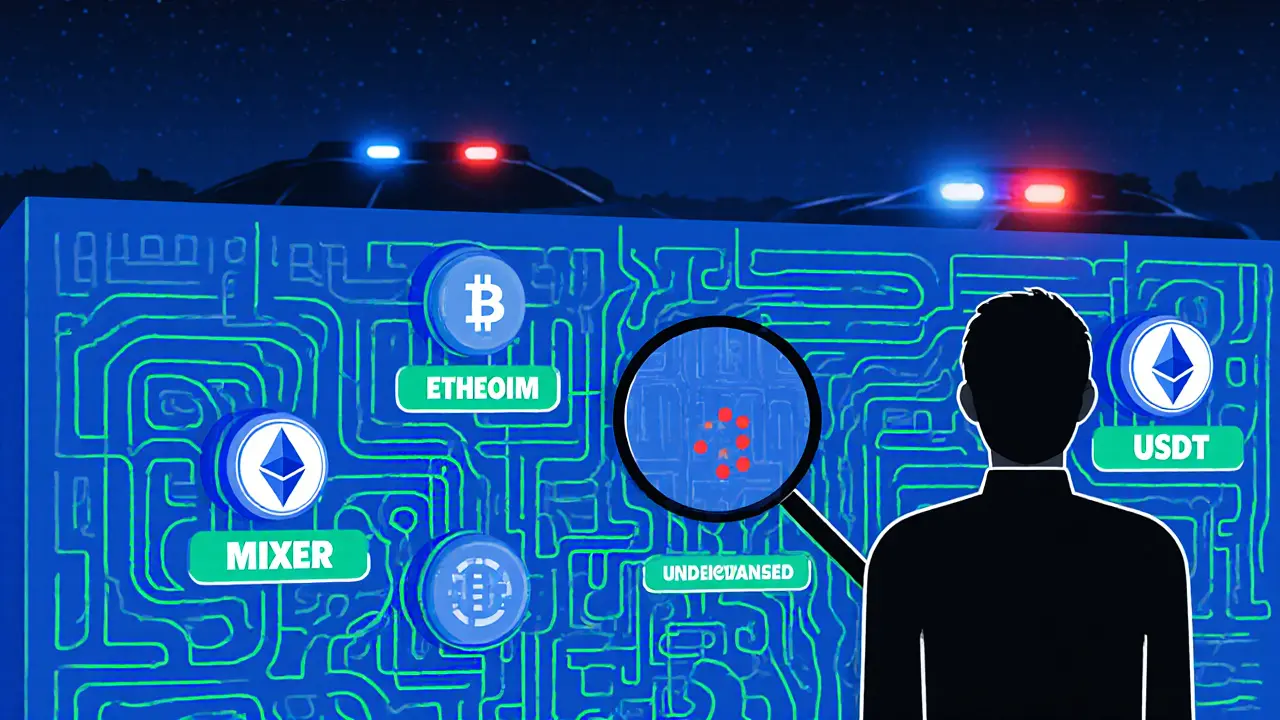Crypto AML Penalties: Fines, Jail Time, and How to Stay Compliant
When you trade or hold cryptocurrency, you’re not just dealing with prices and wallets—you’re also under the watch of anti-money laundering (AML) regulations, government rules designed to stop criminals from using digital assets to hide illegal money. Also known as cryptocurrency compliance laws, these rules treat crypto like cash: if you move it, someone is tracking it. The IRS, the U.S. tax authority that now monitors every crypto transaction doesn’t just want your taxes—they want proof you didn’t use crypto to launder drug money, ransomware payments, or stolen funds. And they’ve got the tools to prove it.
These aren’t theoretical risks. In 2024, the U.S. government sentenced a crypto trader to 5 years in prison and fined him $250,000 for hiding crypto income. That’s not an outlier—it’s becoming the norm. The Financial Crimes Enforcement Network (FinCEN), the U.S. agency that enforces AML rules across banks and crypto platforms now requires exchanges to report transactions over $10,000, and many countries are forcing wallets and DeFi platforms to do the same. Even if you think you’re anonymous, your wallet address leaves a trail. Every swap, every transfer, every bridge to another chain gets logged somewhere.
It’s not just about taxes. AML compliance, the process of verifying users and monitoring suspicious activity is now baked into every major exchange. If you use Coinbase, Kraken, or Binance, you’ve already submitted ID, proof of address, and sometimes even source-of-funds documents. But if you use a non-KYC DEX or a shady platform like SharkSwap or LocalCoin DEX, you’re not avoiding regulation—you’re inviting it. These platforms don’t report, so when the IRS or Europol digs into a criminal case, your wallet becomes the first place they look.
And it’s not just the U.S. Russia bans crypto payments outright. Pakistan enforces a 15% capital gains tax and tracks wallets. The UK, Canada, Australia, and the EU all have similar rules. If you’re moving crypto across borders, you’re crossing legal lines—and those lines are getting sharper. The days of thinking "crypto is cash and no one cares" are over. The government doesn’t need to prove you’re a criminal. They just need to prove you didn’t report it.
What does this mean for you? If you’ve traded crypto before 2023 and didn’t report it, you’re not safe. The IRS has data from exchanges, blockchain analytics firms like Chainalysis, and even your bank. If you’ve used a wallet that connected to a centralized exchange, your history is already in their system. The best move isn’t to hide—it’s to fix it. File amended returns, pay what you owe, and get compliant. The penalties for hiding are far worse than the taxes you’ll pay.
Below, you’ll find real cases, real fines, and real advice from people who’ve been caught—and those who got out before it happened. No fluff. No theory. Just what you need to know to stay out of jail and keep your money.
Money Laundering Charges for Crypto: What Happens If You Get Caught
Crypto money laundering can lead to serious prison time-up to 20 years in extreme cases. Learn how charges work, what triggers harsh sentences, and why stablecoins are now the tool of choice for criminals.
Details +